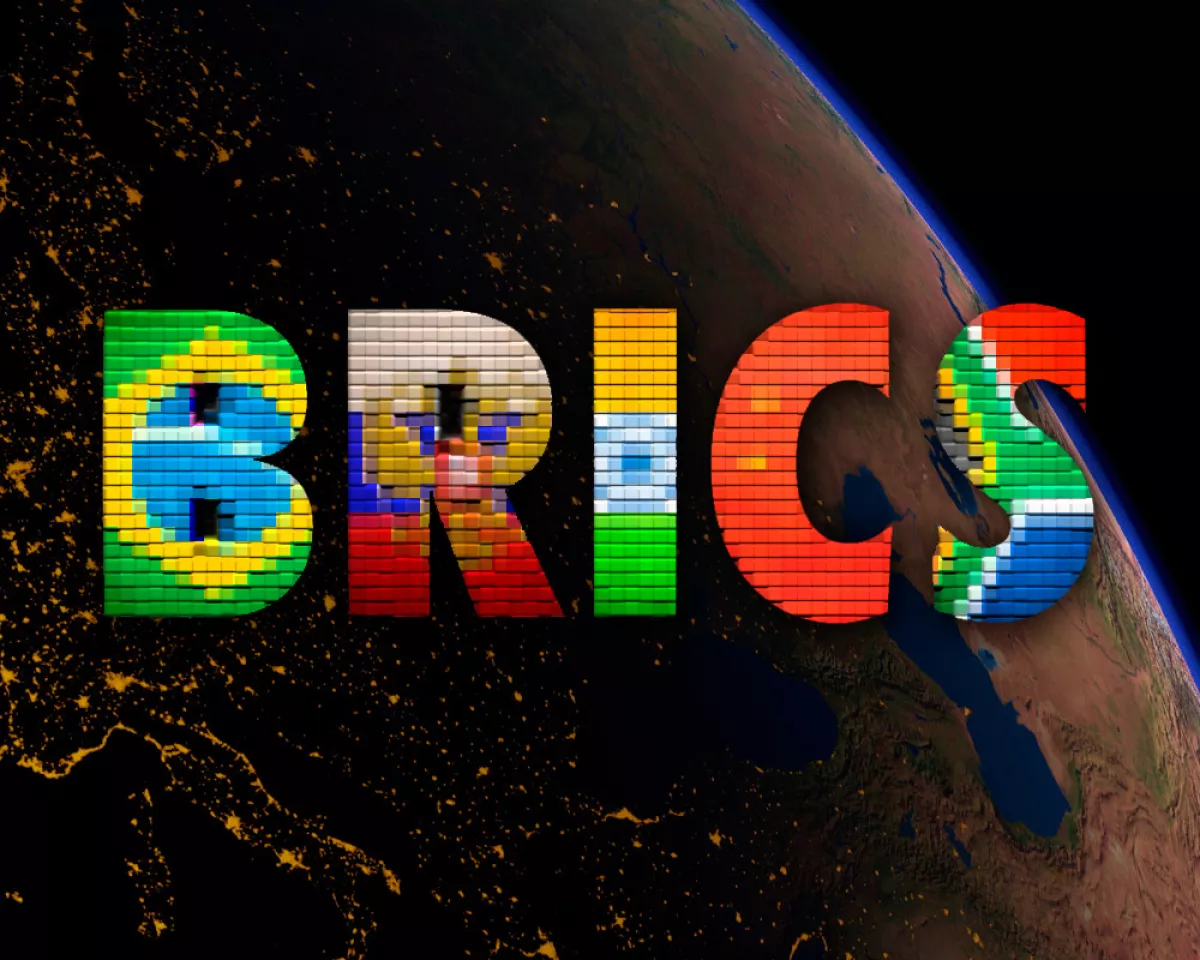BRICS ascendance, EU's erosion, and Azerbaijan's geopolitical masterclass Europe in crisis
The EU is approaching a tipping point, with Europe running out of time to defend its place in a ruthless world, writes Bloomberg. According to the publication, a combination of political paralysis, external threats, and economic decline threatens to end the EU's ambitions of becoming an independent global power, pushing member states to protect their own interests.
The article notes that while the US and China also face challenges, both countries have systems that largely centralize decision-making and generate vast amounts of private or public capital for defence and investments in advanced technologies. "Europe has none of those advantages," the article emphasizes.
All of this is true. Moreover, it is important to consider the growing internal contradictions within the EU itself, which has long ceased to be a monolithic organization with a unified stance on all issues. One only needs to recall the stark difference in positions between Hungary and Slovakia on the one hand, and the EU leadership on the other, regarding the Russia-Ukraine war. There are numerous such conflicts of interest tearing the EU apart from within.

It is quite clear that each country within the EU is driven by its own interests, which do not always align with the interests of other member states. A prime example is the grain conflict between Ukraine and Poland, which arose because the European Commission gave the green light to Ukrainian goods by removing all tariffs and quotas. This happened after Russia’s invasion of Ukraine and the blockade of Ukrainian Black Sea ports. In July 2022, thanks to UN mediation and the "Black Sea Grain Initiative" agreement, Ukrainian ports partially reopened. Simultaneously, land "solidarity corridors" through European countries were established, and the European Commission adopted the aforementioned decision.
According to the European Union, nearly 33 million tons of grain and food products have been exported to 45 countries. Poland became one of the key land transit corridors for Ukrainian grain. Timing and volume were critical in the transport process, but it soon became clear that Poland lacked the capacity to effectively handle and re-export Ukrainian agricultural products, as its transit and port infrastructure was not equipped for such large-scale operations. This led to a conflict involving Polish farmers, who felt they were on the losing side. While the conflict was ultimately swept under the rug rather than fully resolved, it highlighted once again the deep internal contradictions within the EU.
In this context, the appeal of BRICS continues to grow. Just recently, Serbia's Deputy Prime Minister Aleksandar Vulin stated that his country is considering joining BRICS. According to him, Serbia sees joining BRICS as a real alternative to EU membership. Vulin made this remark during an interview with the German newspaper Berliner Zeitung.

It’s also worth noting that Ankara has applied for BRICS membership. This move by Türkiye is largely driven by disagreements with other NATO members, stemming from its close ties with Moscow following Russia’s invasion of Ukraine in 2022. Additionally, observers point out that Türkiye is frustrated by its long-standing exclusion from the European Union. Indeed, the situation is quite remarkable. Türkiye has been a founding member of the Council of Europe since 1949, and thanks to the Association Agreement signed on September 12, 1963, between the European Economic Community (EEC) and Türkiye, it has been an “associate member” of the European Union and its predecessors since 1964. The country formally applied for EU membership on April 14, 1987, but it took 12 years to achieve candidate status at the Helsinki Summit in 1999.
Following the Brussels summit on December 17, 2004 (after the EU’s major 2004 enlargement), the European Council announced that official negotiations on Türkiye’s EU membership would begin on October 3, 2005. The process of screening Türkiye's legislation started on October 20, 2005, and was completed on October 18, 2006. However, as we can see, full membership for Türkiye in the EU is still a distant prospect. This is partly due to the strongly anti-Turkish and anti-Islamic stance of several leading European countries, including France.
In contrast, Azerbaijan has taken a highly strategic, balanced, and forward-thinking approach. Unlike many others, Azerbaijan has never sought EU membership. This is despite the fact that the EU is Azerbaijan's top trading partner, accounting for the largest share of both exports and imports. The EU is also the largest investor in both the oil sector and other areas of the Azerbaijani economy. The EU's share in Azerbaijan's total trade volume stands at 50%, and EU countries make up 35% of investments in Azerbaijan's non-oil sector. Additionally, Azerbaijan has signed strategic partnership agreements with nine EU member states—one-third of the entire European Union.
At the same time, Azerbaijan has officially applied to join BRICS. It’s important to recall that on July 3 of this year, during the Shanghai Cooperation Organisation Summit in Astana, a "Joint Declaration on the Establishment of a Strategic Partnership between the Republic of Azerbaijan and the People's Republic of China" was signed. According to article 4.5 of the declaration, Azerbaijan expressed its desire to join BRICS, and China supported this decision. Therefore, at the upcoming BRICS summit in Kazan from October 22-24, Azerbaijan will be one of the most important and eagerly awaited participants.
Overall, it is clear that the future of BRICS appears far more promising and attractive than that of the EU. Once again, the leadership of Azerbaijan has demonstrated exceptional geopolitical acumen by making a strategically sound decision. This approach allows Azerbaijan to pursue BRICS membership while maintaining mutually beneficial relations with one-third of the EU member states.








